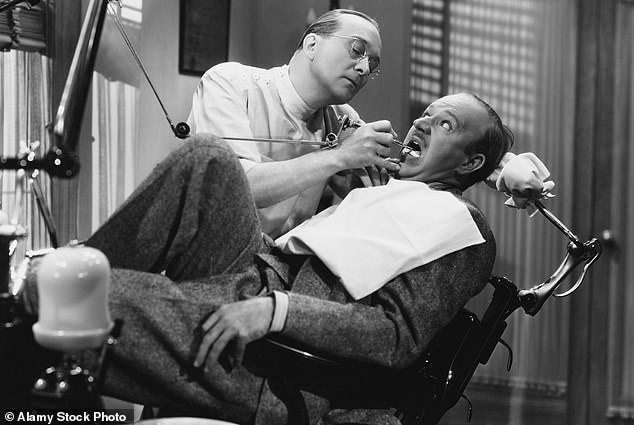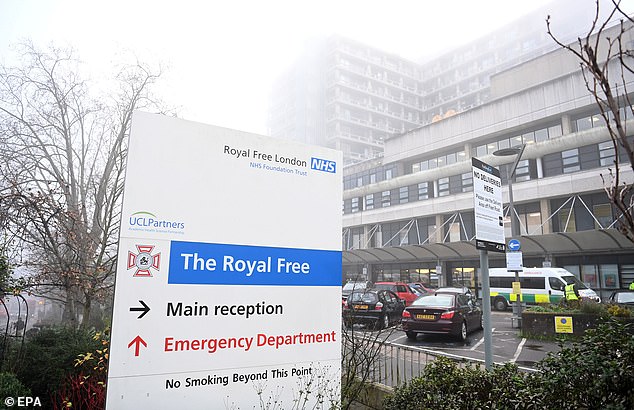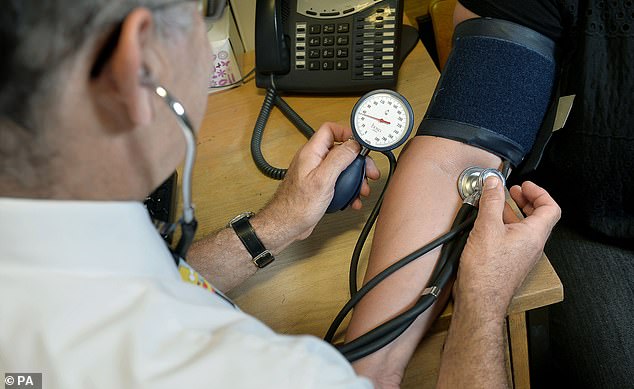Having wisdom teeth removed could super-boost your tastebuds.
Scientists at Penn University in the US performed blind taste tests on more than 1,200 patients shortly after tooth removal, then 20 years later.
While there was little difference in taste detection immediately after surgery, two decades later those who had the operation outperformed their peers by up to ten per cent.
Those with no wisdom teeth were better able to detect sweet, salty, caffeine and bitter tastes than those with wisdom teeth intact.
The scientists suggest this could be the result of scar tissue from the surgery becoming hypersensitive.

Those with no wisdom teeth were better able to detect sweet, salty, caffeine and bitter tastes than those with wisdom teeth intact
App that looks after your liver
An app that lets doctors keep tabs on liver-disease patients also keeps sufferers out of hospital, according to a new study.
Patients at the Royal Free Hospital in London took a range of daily measurements including blood pressure, weight, and scores on a memory test, and logged the results on a smartphone app.
Liver specialists at the hospital led by Professor Raj Mookerjee were granted instant access to the results, meaning they could remotely monitor patients and spot early warning signs of deterioration.
The early trial of 20 patients showed that only a quarter were admitted to hospital over a period of 12 weeks, compared with 40 per cent of a group of patients who were not using the app.
Patients who did go to hospital were discharged a week earlier, on average, than those who didn’t use the app.

Patients at the Royal Free Hospital (file photo, above) in London took a range of daily measurements including blood pressure, weight, and scores on a memory test, and logged the results on a smartphone app
Almost a third of UK working adults have ignored a health issue because of the Covid-19 pandemic, new research suggests.
A study from healthcare provider Benenden Health found that as many as 31 per cent of Britons had not sought medical support for a health issue or had delayed doing so as a result of the pandemic.
Of those who put off a visit to the doctor, a quarter did because they were worried about catching Covid.
More than a third said they thought the NHS would not have time to see them, while another quarter believed their health issue was not that important.
More than half the 2,000 respondents had developed a mental health issue, such as anxiety or depression.

A study from healthcare provider Benenden Health found that as many as 31 per cent of Britons had not sought medical support for a health issue or had delayed doing so as a result of the pandemic (file photo)
Meanwhile, GPs have seen a 500 per cent surge in demand for mental health support for youngsters since the pandemic began, one of the UK’s biggest private healthcare firms has warned.
More than two-thirds of cries for help come from teenagers and young children. In 90 per cent of cases, the problems arose because of the pandemic.
Akea Life managing director Ben Paglia said: ‘We are staggered at the number of calls we are taking on mental health issues relating to Covid and lockdown. The pandemic is having a significant impact on schoolchildren.’
Source link : https://www.dailymail.co.uk/health/article-9847333/HEALTH-NOTES-Having-wisdom-teeth-removed-super-boost-taste-buds-study-finds.html











